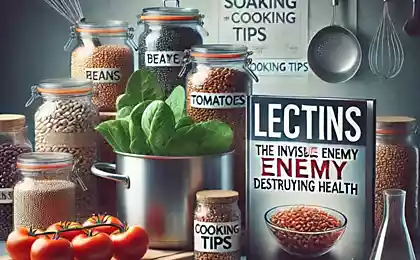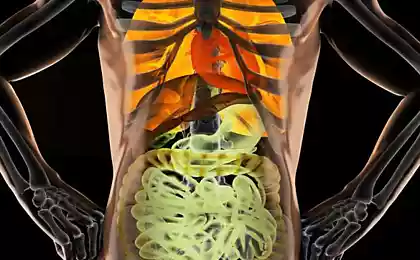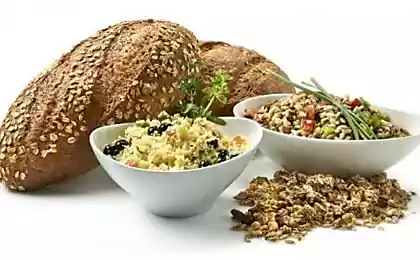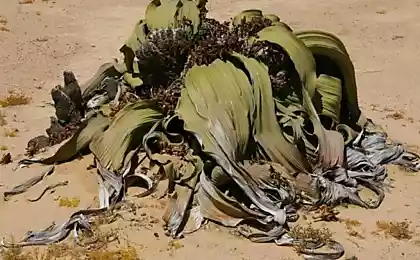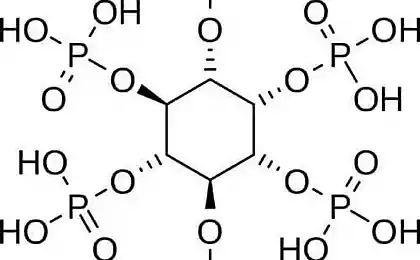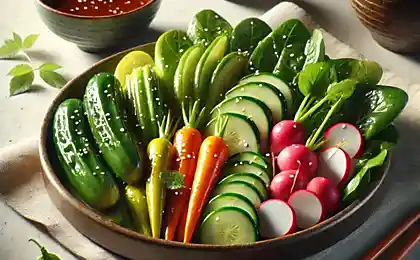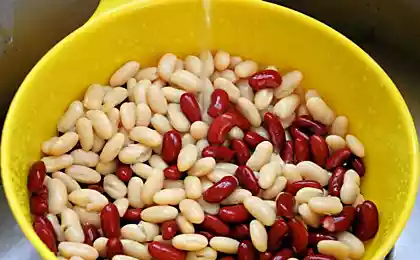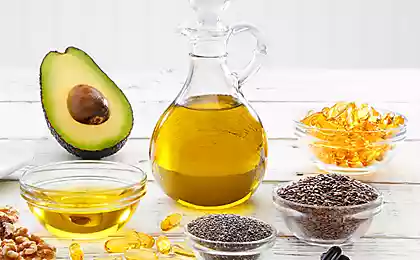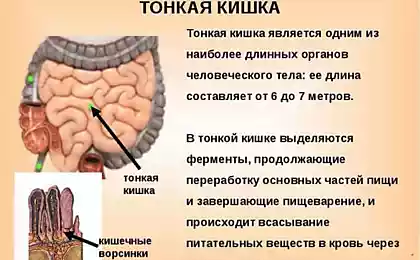2387
Caution! Lectins in foods that you thought were healthy
First of all, do not confuse the leptin and lectins. Of leptin are hormones regulating appetite and metabolism.Lectins are substances that are produced by plants to protect themselves. (The problem of lectins wider, but we will restrict ourselves to plants).
Plants have many enemies who want to eat foliage or fruits.It is clear that plants have to protect themselves and their offspring. Some of the plants have visible protection — for example, the spines of the cactus or the thorns have roses. But not everyone is so lucky. Many plants can only rely on any substance in its composition, which should be sufficiently poisonous to enemies. And plants really produce such substances, which have been called lectins.
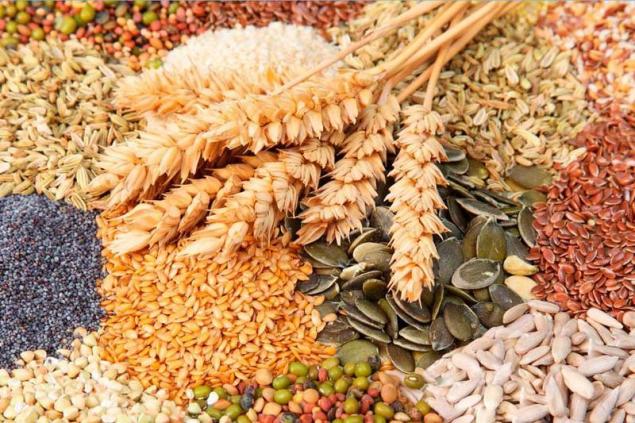
Among the numerous enemies of the plant — you and me. We with pleasure as the green plants (lettuce, fennel, cabbage) and their offspring (cucumbers, beans, wheat, rice, oats, etc.) without linking occurs then problems with plant poisons in their favorite foods.Lectins contained in the food is one of the main reasons disturbing the delicate equilibrium of the gastrointestinal tract.
Now many have heard about the toxic lectines wheat is one of the reasons why wheat is contraindicated for many people. Some researchers believe that no man can correctly digest wheat, and other cereals. Our digestion suffers from the toxicity of grains, and excessive starch.
Unfortunately, products made with whole grains (e.g. whole grain flour) and sprouted grains (wheat germ, wheat grass and bread from sprouted grain) contain more lectin than even regular white flour.
And we think that will improve the health if we use whole grains and sprouts instead of white hulled wheat (often referred to as "white death", "empty calories"). And if you do not eat wheat? We thought, then certainly get rid of all the bad in wheat (gluten is a problem, which everyone now knows) and we can have oats, rye, Kamut and other wheat substitutes all you want. But our hopes were dashed — gluten is not only wheat. Now, besides, as it turned out, in wheat and in other grains there's another annoyance — toxic lectin.
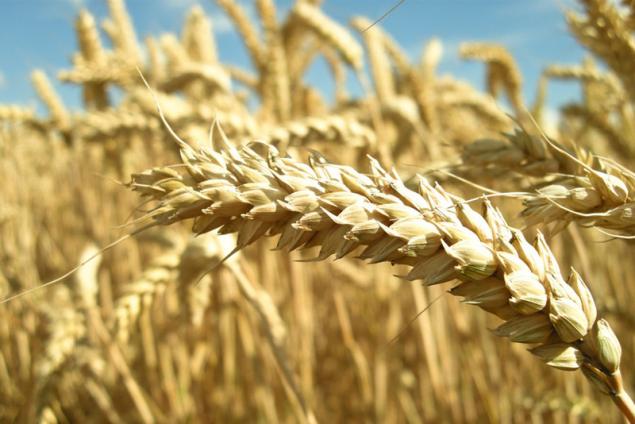
To date, the lectin wheat is better understood than other grain lectins. Highlighted are its possible effects on the body:
-provokes inflammatory processes;
-toxic to immune system, nervous system, sedeno-vascular and endocrine systems;
-causes significant disruptions in the digestive tract;
-cause at the cellular level.
Don't want to give up all grains for 2-3 weeks and see how you feel? You may be surprised at the improvement in your health.
Lectins — natural poisons-pesticides, which are found in vegetable and animal products. The General public doesn't know about them. Even among those who are actively interested in healthy food, not everyone knows about them.
Today it is known that the lectins in the foods we eat affect the health of everyone. For less sensitive organisms, the damage is not so obvious, though it is, and for the more sensitive organisms lectins are very dangerous.
Plants protect themselves from eating "predators" to which we belong. To this end, plants produce special potent substances — lectins, which damage the organisms 'predators'. Lectins represent a sticky protein-sugar molecules (glycoproteins) that can stick to the walls of the intestines, when we eat foods containing lectins.
Lectins are ubiquitous, avoiding them is almost impossible. People have learned to do libtinymailui toxic by soaking and fermentation, so that the recipes of our grandmothers and great-grandmothers can help keep us healthy in our day. But many in our food naturally fermented foods? How often do we use the soaking?
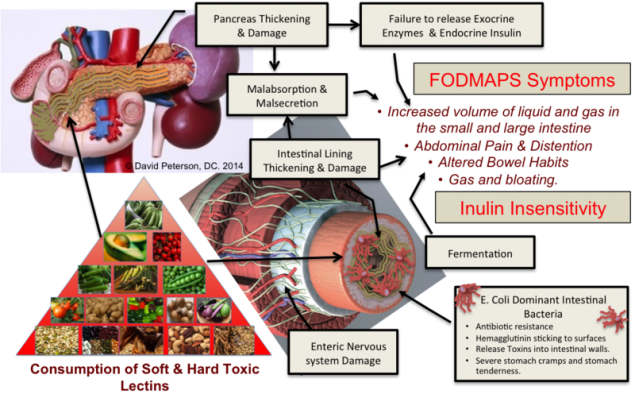
Different foods contain different amounts of lectins. The large amount of lectins contained in these product groups:
— cereals of all kinds (especially wheat);
— legumes (especially soy);
— nuts and seeds;
— dairy products;
— nightshades (potatoes, tomatoes, peppers, eggplant);
fats, which are produced from said groups of products;
— genetically modified foods (they specifically inserted lectins).
The least amount of lectins contained in such products:
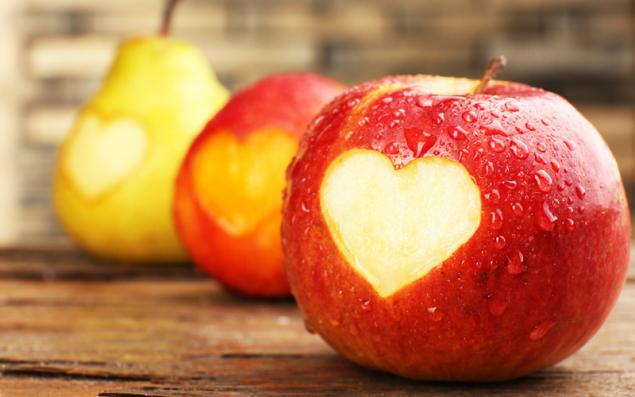
What is the harm we are lectins? Sticky molecules stick to the mucosal surface of the intestine, particularly the villi (villi). Damage the mucosa, which means poor intake of nutrients from food. Harm beneficial microflora, so harmful toxic microflora gets a chance to multiply that happens.
But the biggest dangers of lectins — they cause micro-perforation (in other words, programovanie) of the intestinal wall. When this happens, lectins and other particles (e.g., undigested food particles) can enter the bloodstream and spread throughout the body, causing inflammation and pain. Doctors call this "leaky gut syndrome" (leaky gut).
In particular, through the blood lectins can reach vital organs and stick to them, disrupting their work. The body is struggling with this condition are attacking their bodies stuck to lectine. It is classified as an autoimmune disease. Of course, this is a very simplified diagram of what is happening.
Lectins are violating in this way the work of many organs. Diseases such as irritable bowel syndrome (IBS), Crohn's disease, colitis, fibromyalgia, chronic fatigue syndrome, arthritis is the effects of the lectins in the body, experts say.
So, to summarize all that said... in Order to protect your body from hitting lectine, it is necessary to limit the number of lectins in the diet. Depending on the sensitivity of the body, it is possible to limit only the products with the highest content of lectins or need to exclude other lectin-containing foods, eating for some time that contains the least number of them. With the improvement of the condition you can return a particular product group, but will have to see the reaction of the body.
Eat more sauerkraut, pickles, yogurt and kefir. Diversify the food. Avoid genetically modified foods. Maintain intestinal health with probiotics and prebiotics.published
Source: www.horosheezdorovje.ru/lektiny-2/
Plants have many enemies who want to eat foliage or fruits.It is clear that plants have to protect themselves and their offspring. Some of the plants have visible protection — for example, the spines of the cactus or the thorns have roses. But not everyone is so lucky. Many plants can only rely on any substance in its composition, which should be sufficiently poisonous to enemies. And plants really produce such substances, which have been called lectins.

Among the numerous enemies of the plant — you and me. We with pleasure as the green plants (lettuce, fennel, cabbage) and their offspring (cucumbers, beans, wheat, rice, oats, etc.) without linking occurs then problems with plant poisons in their favorite foods.Lectins contained in the food is one of the main reasons disturbing the delicate equilibrium of the gastrointestinal tract.
Now many have heard about the toxic lectines wheat is one of the reasons why wheat is contraindicated for many people. Some researchers believe that no man can correctly digest wheat, and other cereals. Our digestion suffers from the toxicity of grains, and excessive starch.
Unfortunately, products made with whole grains (e.g. whole grain flour) and sprouted grains (wheat germ, wheat grass and bread from sprouted grain) contain more lectin than even regular white flour.
And we think that will improve the health if we use whole grains and sprouts instead of white hulled wheat (often referred to as "white death", "empty calories"). And if you do not eat wheat? We thought, then certainly get rid of all the bad in wheat (gluten is a problem, which everyone now knows) and we can have oats, rye, Kamut and other wheat substitutes all you want. But our hopes were dashed — gluten is not only wheat. Now, besides, as it turned out, in wheat and in other grains there's another annoyance — toxic lectin.

To date, the lectin wheat is better understood than other grain lectins. Highlighted are its possible effects on the body:
-provokes inflammatory processes;
-toxic to immune system, nervous system, sedeno-vascular and endocrine systems;
-causes significant disruptions in the digestive tract;
-cause at the cellular level.
Don't want to give up all grains for 2-3 weeks and see how you feel? You may be surprised at the improvement in your health.
Lectins — natural poisons-pesticides, which are found in vegetable and animal products. The General public doesn't know about them. Even among those who are actively interested in healthy food, not everyone knows about them.
Today it is known that the lectins in the foods we eat affect the health of everyone. For less sensitive organisms, the damage is not so obvious, though it is, and for the more sensitive organisms lectins are very dangerous.
Plants protect themselves from eating "predators" to which we belong. To this end, plants produce special potent substances — lectins, which damage the organisms 'predators'. Lectins represent a sticky protein-sugar molecules (glycoproteins) that can stick to the walls of the intestines, when we eat foods containing lectins.
Lectins are ubiquitous, avoiding them is almost impossible. People have learned to do libtinymailui toxic by soaking and fermentation, so that the recipes of our grandmothers and great-grandmothers can help keep us healthy in our day. But many in our food naturally fermented foods? How often do we use the soaking?

Different foods contain different amounts of lectins. The large amount of lectins contained in these product groups:
— cereals of all kinds (especially wheat);
— legumes (especially soy);
— nuts and seeds;
— dairy products;
— nightshades (potatoes, tomatoes, peppers, eggplant);
fats, which are produced from said groups of products;
— genetically modified foods (they specifically inserted lectins).
The least amount of lectins contained in such products:
- -cabbage (white and red cabbage, broccoli, cauliflower)
- -mushrooms
- -leafy greens
- pumpkin
- -zucchini
- sweet potatoes
- carrots
- -avocado
- -citrus
- -pineapples
- -asparagus
- -black cherry
- -apples
- -animal protein (meat, poultry, fish, eggs)
- -olive oil
- butter
- lard

What is the harm we are lectins? Sticky molecules stick to the mucosal surface of the intestine, particularly the villi (villi). Damage the mucosa, which means poor intake of nutrients from food. Harm beneficial microflora, so harmful toxic microflora gets a chance to multiply that happens.
But the biggest dangers of lectins — they cause micro-perforation (in other words, programovanie) of the intestinal wall. When this happens, lectins and other particles (e.g., undigested food particles) can enter the bloodstream and spread throughout the body, causing inflammation and pain. Doctors call this "leaky gut syndrome" (leaky gut).
In particular, through the blood lectins can reach vital organs and stick to them, disrupting their work. The body is struggling with this condition are attacking their bodies stuck to lectine. It is classified as an autoimmune disease. Of course, this is a very simplified diagram of what is happening.
Lectins are violating in this way the work of many organs. Diseases such as irritable bowel syndrome (IBS), Crohn's disease, colitis, fibromyalgia, chronic fatigue syndrome, arthritis is the effects of the lectins in the body, experts say.
So, to summarize all that said... in Order to protect your body from hitting lectine, it is necessary to limit the number of lectins in the diet. Depending on the sensitivity of the body, it is possible to limit only the products with the highest content of lectins or need to exclude other lectin-containing foods, eating for some time that contains the least number of them. With the improvement of the condition you can return a particular product group, but will have to see the reaction of the body.
Eat more sauerkraut, pickles, yogurt and kefir. Diversify the food. Avoid genetically modified foods. Maintain intestinal health with probiotics and prebiotics.published
Source: www.horosheezdorovje.ru/lektiny-2/
